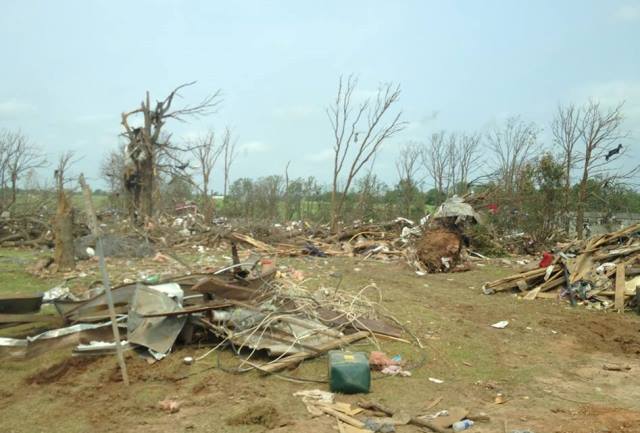By Jeff Brumley
Barbecues, trips to the mountains, visits to the beach or just relaxing in the backyard are options for many pastors during the summer. But not those who find themselves and their congregations at ground zero of recent major disasters.
They are instead weighed down with organizing relief and rebuilding in addition to pastoral and preaching duties that never stopped for killer tornadoes or fertilizer plant explosions.
“Looking back, I don’t know if there ever was a possibility of taking time off,” said Phil Immicke, associate pastor of First Baptist Church in West, Texas.
West is where a fertilizer plant blew up in April, killing 15 residents, injuring 200 and destroying around 150 homes. Ever since, First Baptist has been the hub of daily demolition and rebuilding efforts headed by Immicke and Pastor John Crowder.
They got some help from the Baptist General Convention of Texas, which brought in nearly 650 volunteers in June to help with debris clearing and lawn maintenance.
While the “Loving West” helped Crowder and Immicke focus their efforts on demolishing ruined homes, it also made the church busier than ever.

“We’ve been active since day one,” Crowder said in June while the project was underway. At the time, Crowder guessed his first real break from the activity would not be until September, when he is scheduled to undergo knee surgery.
Immicke, who works nights as a Waco police officer, said he’s had some time off here and there but largely tries to avoid that. “When I did take rest, I would wake up and be behind the curve on certain things, especially with the demolition,” Immicke said.
But disaster-response experts say people – and pastors – can only take so much and often must be forced to take down time during hectic situations.
“In chaplaincy and responder training, you learn you have to take care of number one first, or you will become part of the situation yourself,” said Tommy Deal, disaster-response coordinator for the Cooperative Baptist Fellowship.
Deal said he learned the lesson firsthand shortly after Hurricane Katrina as he was helping organize response in Hattiesburg, Miss. He became so overwhelmed by the need and hours of work that he soon found himself hiding out at University Baptist Church.

“I called a friend in Orlando and had to … ask him to pray for me and I ended up crying,” Deal said. “I just had to release some things (and) take care of myself.”
In Norman, Okla., NorthHaven Church Pastor Mitch Randall said he may have been trending toward burnout after the May 20 twister that hit nearby communities, including Moore.
“We went non-stop for two weeks, but what happened here in the Oklahoma City area was … a swell of volunteers,” Randall said. “So we began to take periodic breaks because of the swell of volunteers.”

Randall said church members actually discussed recognizing the importance of Sabbath during disaster recovery.
“You can’t help anyone if you are out of it,” he said. “The first person you have to minister to sometimes is yourself.”
